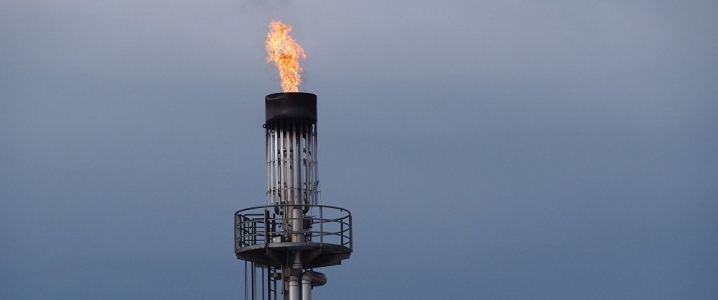The latest port blockade in Libya, which had sent the country’s oil production plunging and oil prices surging, was lifted last week with new promises of transparency and the fair distribution of oil revenues.
As part of the agreement for lifting the port closure, Libya’s central bank, national oil company, politicians, businessmen, and traders in the country could end up being probed in a wide-ranging corruption investigation to tackle the underlying problem of Libya’s oil wealth—accusations and counteraccusations of corruption and channeling of oil revenues to Islamist groups.
The Libyan National Army (LNA) of eastern strongman General Khalifa Haftar recaptured in June four ports in the Oil Crescent in the east from armed groups after a week of fighting, handing their control to an unrecognized oil company in the east. But last week, Haftar agreed to hand back control of the ports to the internationally recognized National Oil Corporation (NOC).
The port closure had blocked 850,000 bpd of Libya’s oil (nearly all Libya’s oil production) from being exported from the four ports for more than two weeks.
The agreement that resulted in Libya reopening its ports last week and beginning to restore the production lost during the blockade was backed by the United Nations, France, Italy, the UK, and the United States.
As part of the agreement, the governments agreed that there should be a wide-ranging corruption probe under the auspices of the UN, the UK’s newspaper The Independent reports, citing sources close to the Libyan authorities. Related: Who Actually Benefits From Sanctions On Iran?
According to The Independent’s sources in the UK foreign office, there wasn’t a “firm” agreement between the parties, although Libyan sources said that “everyone around the table said it was a good idea”, with France, the UAE, and Egypt reportedly being in favor of such a probe.
General Haftar and his allies claim that Libya’s oil money is being mismanaged, stolen, or channeled to extremist groups. The accusations are mostly directed to the Central Bank of Libya. At a meeting with the foreign governments in Rome that later led to the agreement for returning the ports to the NOC’s control, Haftar’s side quoted 11 allegations of abuse of power and corruption at the Central Bank of Libya that it wanted investigated, according to The Independent’s sources.
Central bank governor Saddek Elkaber, for his part, has accused Libyan governments of using the central bank as a ‘scapegoat’ for their own mismanagement and misdeeds.
The latest agreement that lifted the oil port blockade may lead to a wide-ranging corruption probe, but any new deal on oil wealth distribution must tackle the structural corruption problems in Libya, analysts say.
Any new agreement “must not simply be a new agreement on who is allowed to steal from the state, but one that protects state spending from predation,” Tarek Megerisi, visiting fellow and Libya expert at the European Council on Foreign Relations, told The Independent.
Fayez al-Sarraj, Chairman of Libya’s Presidency Council, has asked the United Nations Security Council to create a technical committee to audit all accounts and transactions of the Central Bank of Libya in Tripoli and the parallel central bank in Bayda in the east, NOC chairman Mustafa Sanalla said in a statement about the action plan to resume production after the port blockade was lifted.
A spokesman for the Chairman of the Presidency Council said this week that the UN Security Council responded to the request to set up an international commission to review the revenues and expenditure of the two parallel central bank institutions, Libyan media report. Related: Oil Selloff Gives Trump More Room On Iran
On Monday, the Special Representative of the Secretary-General, Ghassan Salamé, briefed the UN Security Council about the latest developments in Libya’s Oil Crescent, saying that “The end of the immediate crisis has brought a collective sigh of relief; but it is not the end of the matter.”
“The events have brought to the fore the underlying issues which plague the country and which I have repeatedly outlined to this Council. Namely, frustrations with regards to the distribution of wealth and the endemic plundering of resources.”
ADVERTISEMENT
“If these matters are not expeditiously addressed, I fear the agreements made to resume the production of oil will not hold, and it will be difficult to advance the political process,” Salamé noted.
“If there has been a silver lining in the events, it is that the various authorities in Libya now accept that they need to take action to protect the country’s wealth.”
By Tsvetana Paraskova for Oilprice.com
More Top Reads From Oilprice.com:
- Are Bionic Cells The Future Of Solar?
- Record Oil Production Doesn’t Free U.S. From Global Market
- U.S. Poised To Ease Biofuel Quotas


















